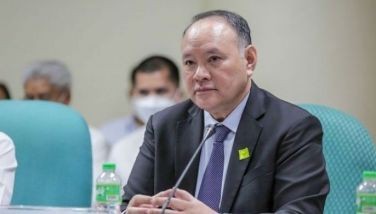Waterproof, but not necessarily future-proof
Why we need to ensure urban and environmental resilience
MANILA, Philippines - We Filipinos have come to bestow upon ourselves quite proudly the description of being “waterproof,” given the numerous times we have survived natural calamities such as typhoons. We have gained international recognition and admiration for our ability to cope with such disasters, but is it a mechanism that we can solely rely on always?
“While the overall positive perception of Filipinos is truly admirable, it is important that this mental and emotional resilience does not lead to an oversight on important physical and actual resilience,” explains Glynn Ellis, strategic energy advisor of Shell corporate strategy and planning.
While it is true that Filipinos are relatively innate survivors, this should not lead to what Ellis fears as “complacency” or a dependence on survival mode. More than anything, the country’s experiences dealing with disasters should provide enough knowledge and wisdom to draw up the most effective urban planning and disaster management frameworks, in order to become “future-proof.”
Ellis uses the word “pragmatism” to underscore the ideal attitude moving forward, balancing a continued sense of optimism with actual readiness.
Powering progress together
Ellis was in town recently as a member of an international panel of multi-sectoral representatives tackling the timely topic of urban and environmental resilience, at the Power Progress Together–Asia forum for 2015 held in Manila.
The forum is a global dialogue being facilitated by Shell as part of its business practice of “scenarios” building, which it has been undertaking for more than 40 years now, to help better understand the urbanizing world and to support city planning and development.
A highlight of the Asian forum this year are the results of a landmark study on just how ready we Filipinos think our cities are in terms of future development, and being resilient to environmental and human factors.
A perception survey carried out by global research firm Ipsos on a thousand residents of Metro Manila reveals that majority of them do believe their city is resilient to the challenges of natural disasters and urbanization. Not surprisingly, however, residents themselves acknowledge that a number of key developmental issues still exist, which should be prioritized in order to help the city cope better with future challenges.
Environmental resilience
For instance, 86 percent of Metro Manilans feel that the city is resilient to extreme weather events. However, with the number of major weather disturbances that the city has faced in recent history—most importantly tropical storm Ondoy—residents also identified waste management, drainage declogging, and construction of roads as important priorities in improving the city.
Aside from these longer-term infrastructure investments, a third of residents also feel that their local communities could improve on disaster preparedness, along with other environmental measures such as reforestation (29 percent), and development of waterways and river basins (21 percent).
Another key finding is that more than half of the respondents look to the government—local as well as national—to deliver improvements in the city. This is an important reminder for government agencies and officials to take an organized lead in urban planning and disaster management.
Urban resilience
As with environmental resilience, most residents—81 percent—feel Metro Manila is resilient to the pressures of urbanization. These are mostly related to population and resources such as food, energy and water.
Concern about resource consumption levels is high at 93 percent, and many see that they themselves have a role to play in reducing this consumption. Fifty-two percent have expressed personal responsibility to reduce their consumption of energy, water and food. Three in ten residents are limiting their use and purchase of appliances that require a lot of energy such as air conditioners. Many are also using energy-saving products, and are undertaking recycling as well.
Among a range of energy sources, solar energy is the most preferred energy choice, followed by natural gas. Residents are also clear that their least preferred method of generating energy would be from coal.
An urbanizing world
If anything, the results should be taken as a strong indicator that Filipinos have the right tools to work with, in order to get on the right path toward resilience in an urbanizing world.
“Urbanization will be one of the most significant dynamics affecting the future, presenting both opportunities and risks,” explains Ellis.
With the increasing urbanization of countries across the world, particularly in Asia, the issues presented in the survey are vital in illustrating the need for careful urban planning, in order to create more efficient, integrated and resilient cities of the future.
According to the United Nations, the global population is projected to increase to nine billion by 2050, with the number of people living in cities expected to rise as well to 6.3 billion—with concentration in countries in Asia such as China and India.
- Latest






























